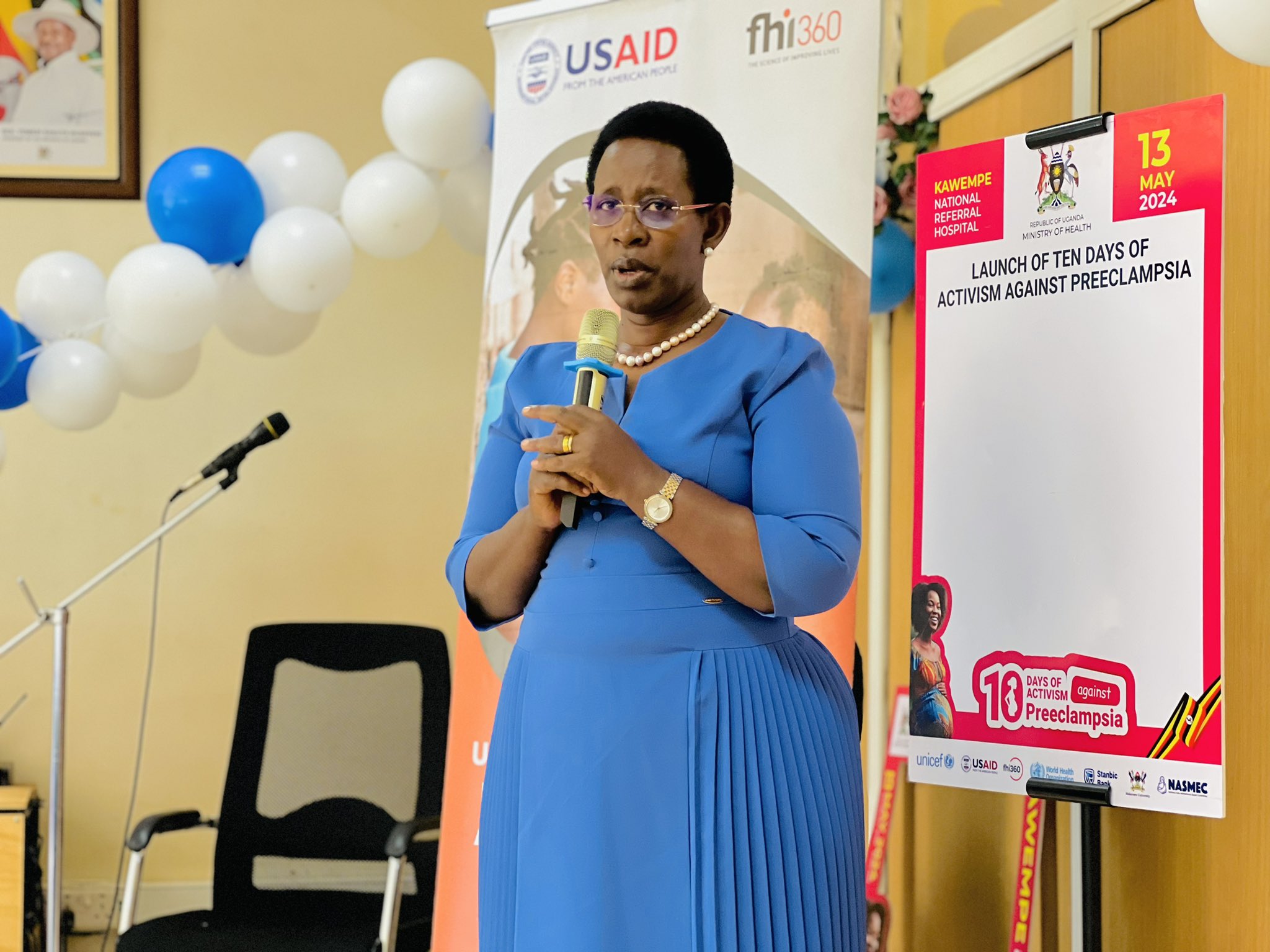On May 13, 2024, Diana Atwine, the Permanent Secretary of the Ministry of Health, launched a 10-day advocacy campaign against pre-eclampsia at Kawempe National Referral Hospital. In her speech, she emphasized the crucial role that men must play in combating this life-threatening condition affecting pregnant women.
Atwine stressed that men significantly influence the onset of pre-eclampsia and can be instrumental in its prevention. “Men contribute to making women pregnant, and they also play a part by not supporting them enough during pregnancy,” she said. She highlighted that many men are absent from home, leaving pregnant women to handle all household chores alone, which can exacerbate their health conditions.
She underscored the importance of early antenatal care to detect complications such as high blood pressure, which can harm both the pregnancy and vital organs like the kidneys. She also emphasized the need for strong family support, particularly from male partners, to help manage and prevent pre-eclampsia.
Pre-eclampsia is the second leading cause of maternal deaths in Uganda. It often presents no symptoms until a health check reveals high blood pressure. Severe symptoms requiring immediate medical attention include headaches, blurred vision, pain in the upper abdomen, swelling of the body, and seizures.
Professor Annet Nakimuli, chairperson of the Pre-Eclampsia National Committee, pointed out that pre-eclampsia often leads to premature births, which are a significant cause of neonatal deaths. She noted that addressing pre-eclampsia could reduce maternal deaths and improve outcomes for premature infants.
Health experts advise that expecting mothers should continue with postnatal care, emphasizing the importance of regular check-ups at six hours, six days, and six weeks after birth. This monitoring is crucial as blood pressure can increase during the postpartum period.
Globally, pre-eclampsia complicates 2-8% of pregnancies and accounts for 9% of maternal deaths in Africa and Asia. The World Health Organization (WHO) reports that the incidence of pre-eclampsia in developing countries is seven times higher than in developed countries.
Pre-eclampsia is a pregnancy complication characterized by high blood pressure and potential organ damage, typically developing after 20 weeks of pregnancy. It can also occur postpartum, known as postpartum pre-eclampsia. Factors increasing the risk include previous pre-eclampsia, multiple pregnancies, diabetes, kidney disease, autoimmune disorders, and in vitro fertilization.
Atwine’s call to action aims to involve men more deeply in supporting their pregnant partners and ensuring they receive the care needed to prevent and manage pre-eclampsia, ultimately reducing maternal and neonatal mortality rates in Uganda.




















